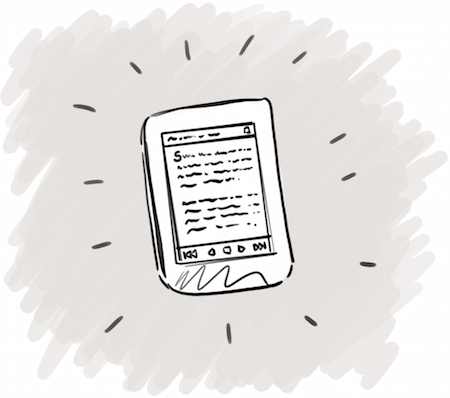2024 Reading List
Books I read in 2024.

It’s been exactly since my last “books I read last year” post, so it’s high time for a new one. An overview of the books I read in , echoing my reading list from .
Masters of Doom
, David Kushner, ★★★☆☆
“Masters of Doom” explores the rise of id Software and its founders, John Carmack and John Romero, during the 90s gaming boom. While the book effectively captures the excitement and rapid technological advancements of the era, and highlights the importance of the duo’s collaboration, its characterizations feel somewhat simplistic, and it could have delved deeper into the technical innovations themselves. Despite these shortcomings, it’s a nostalgic and informative look at a pivotal moment in gaming history. See my longer review →.
Four Futures
, Peter Frase, ★★☆☆☆
An essay on Frase’s visions of a post-capitalist world. The book outlines four scenarios—communism, rentism, socialism, and exterminism—that represent divergent outcomes based on how technology, resources, and social policies might evolve. I read it in early and don’t remember much of it, so it didn’t really stick. It felt more like a discussion starter than a definitive work on possible future scenarios.
Starship Troopers
, Robert A. Heinlein, ★★★☆☆
“Starship Troopers”, a military science fiction novel, is an action-packed read that I enjoyed. Fans of humans fighting bugs in the future should also check out Ender’s Game by Orson Scott Card, a personal favorite. While the book has drawn criticism for its perceived militarism—which is a fair point—it’s just a science fiction story, not a blueprint for future societies. The militarism didn’t bother me; it actually reminded me more of The Forever War by Joe Haldeman. For me, “Starship Troopers” is intrinsically linked to the satirical film of the same name, and the book evoked the same vibes. Between the book and the movie, “Starship Troopers” has become an evergreen cult classic that every science fiction fan should experience.
A.I.
, Leiven Scheire, ★★★☆☆
This book, in Dutch, offers a quick and easy introduction to AI for non-technical readers, helping them understand the current wave of AI, its capabilities, and its limitations. Author Lieven Scheire, a Belgian science communicator, excels at simplifying complex topics. (I highly recommend his podcast, Nerdland, too.) While the book leans toward the positive impacts of AI, perhaps a more balanced exploration of potential downsides—such as intellectual property theft, energy consumption, and AI hallucinations—would have been beneficial.
Contact
, Carl Sagan, ★★★★☆
Another book adapted into a film—this is becoming a theme. I remember loving the movie with Jodie Foster, but I never got around to reading the book until now. It had been long enough that the story felt fresh. “Contact” follows Ellie Arroway, a brilliant radio astronomer who discovers a message from an alien civilization. Her subsequent attempts to decode the messege and make contact form the core of the narrative. As one expects from a Sagan novel, the story is science fiction grounded in real scientific principles. It’s easy to imagine the science actually working, unlike many action-packed space operas with lasers and giant spaceships. Sagan’s writing style can be a bit dry at times. While I ultimately prefer the movie, the book does contain the essential elements that made the film so resonant: a powerful ode to science.
Command and Control
, Eric Schlosser, ★★★★☆
A non-fiction book for a change, though I wish the nuclear incidents it described were fictional. “Command and Control” explores the history of nuclear weapons in the United States, focusing on the accidents and near-misses that have occurred. Schlosser reveals a surprisingly frequent and alarming pattern of incidents, highlighting the potential for catastrophic accidents stemming from human error. The book argues that the perceived safety surrounding nuclear weapons is dangerously misplaced, and the very real threat of accidental detonation. It wasn’t always an easy read; I sometimes had to push myself to continue, as it can be a bit lengthy at times. However, the chillingly real stories it tells were quite an eye-opener.
Starter Villain
, John Scalzi, ★★★★☆
Something lighter and incredibly fun this time. Charlie Fitzer, a substitute teacher barely scraping by while living with his cat, is tasked with organizing his distant uncle’s funeral. This leads him down a rabbit hole of supervillainy, complete with ridiculous powers…or is he simply caught up in absurd office politics? “Starter Villain” offers a comedy take on the superhero genre, exploring themes of unexpected responsibility, finding your place in the world, and the challenges of running a truly terrible criminal enterprise, oh, and something about cats. I absolutely loved it!
Russians Among Us
, Gordon Corera, ★★★☆☆
This non-fiction book explores the hidden world of the modern Russian espionage in the West, detailing its intensification over the past decade and how Western intelligence agencies missed the warning signs. Starting with a family of deep-cover agents uncovered by the FBI it shows how Russian spies have evolved from deep-cover illegals to Russian expats with ties to the secret service. The book serves as a wake-up call, arguing that the West’s Cold War-era thinking is outdated while Russian intelligence has long since adapted. While lifting the veil on this shadowy world, the book is still a Western perspective, leaving me wanting a similar account from a Russian author.